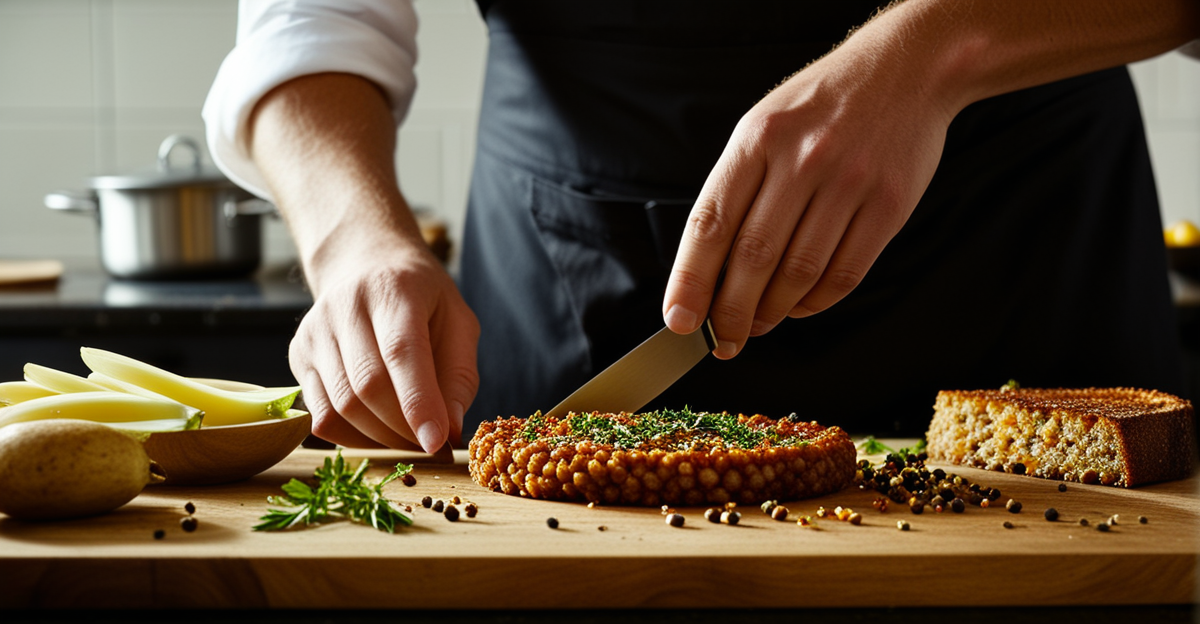Traditional UK Dishes and Their Revival in Modern Cuisine
Traditional British food is experiencing a vibrant resurgence in the contemporary culinary scene. Many signature British dishes, once thought outdated, are making a notable comeback on modern menus. This revival reflects a deeper appreciation for UK culinary history, where classic flavors are respected and celebrated.
Chefs today often reinterpret historical UK dishes by incorporating fresh techniques or updating presentation styles without losing the original essence. For example, dishes like shepherd’s pie, roast beef with Yorkshire pudding, and Cornish pasties are frequently reinvented to appeal to modern palates. Such adaptations preserve the core ingredients but highlight their versatility and richness in new ways.
Additional reading : What Unique Ingredients Can Transform Your Traditional British Dishes?
Regional UK foods play a crucial role in shaping contemporary cooking. The diverse culinary traditions from Scotland, Wales, Northern Ireland, and England’s various counties contribute unique ingredients and methods that enrich menus across the country. These regional influences allow chefs to create distinct dishes that honor local heritage while meeting modern expectations for freshness and creativity.
This revival of traditional British food not only aids in preserving culinary history but also invites new generations to explore and enjoy authentic UK flavors through inventive, yet faithful, modernization.
Also read : How can you pair beverages with traditional UK meals?
Traditional UK Dishes and Their Revival in Modern Cuisine
Traditional British food is experiencing a vibrant resurgence, with many historical UK dishes making a comeback on contemporary menus. This revival not only honors UK culinary history but also brings renewed appreciation for regional specialties. Signature British dishes such as steak and kidney pudding, cornish pasties, and black pudding have been reintroduced, often with modern twists that enhance their appeal.
Chefs today fuse classic recipes with innovative techniques, creating dishes that respect tradition while catering to modern palates. For example, ingredients like suet, traditionally used in British cooking, are now being paired with unexpected flavors or presented in refined plating. This blend of old and new breathes life into historical UK dishes, ensuring they remain relevant and exciting.
Regional UK foods contribute richly to this evolution. Scottish, Welsh, and Northern English culinary elements emphasize local sourcing, giving menus diverse textures and tastes rooted in place. Dishes such as Scottish smoked salmon or Welsh rarebit are reimagined in ways that highlight their heritage while appealing to contemporary food enthusiasts. This ongoing dialogue between past and present is central to the revival of traditional British food, underscoring its enduring cultural significance.
Techniques and Ingredients from British Heritage Shaping Modern Cooking
British cooking techniques rooted in heritage preservation methods like pickling, curing, and fermenting are experiencing a thoughtful revival. These traditional processes were crucial in historical UK kitchens to extend shelf life and intensify flavors before refrigeration. Today, chefs reintroduce them to enhance texture and complexity in dishes, blending old wisdom with modern culinary trends.
Sourcing local, seasonal UK produce has become central to contemporary British cooking. This dedication celebrates the freshness and quality of native ingredients, fostering sustainability and strong connections to place. Traditional ingredients such as root vegetables, game meats, and heirloom grains are back in favor, emphasizing the value of British terroir.
Moreover, forgotten or underused British ingredients gain renewed attention. For example, seaweed varieties historically abundant along UK coasts now appear in innovative recipes, while foraged herbs and wild mushrooms reinsert traditional flavors into modern plates. This careful incorporation respects British cooking techniques and highlights the evolving nature of the culinary landscape, where past and present intersect to form distinctive tastes and textures refined for today’s diners.
Traditional UK Dishes and Their Revival in Modern Cuisine
Traditional British food is reclaiming its place in contemporary dining through the revival of historical UK dishes. Classic staples such as steak and kidney pudding, Cornish pasties, and black pudding are being rediscovered and creatively reimagined by chefs seeking to honor UK culinary history while appealing to today’s tastes.
Modern interpretations often involve subtle tweaks rather than radical changes. For instance, cooks might refine the seasoning, elevate plating, or incorporate complementary ingredients to make traditional dishes more enticing. This approach respects the original composition but enhances flavor and presentation, making the food accessible to a broader audience.
Regional UK foods profoundly shape this culinary renaissance. Scottish smoked salmon, Welsh rarebit, and Yorkshire puddings highlight the diverse ingredients and specialties native to different parts of the country. Emphasizing local provenance fosters authenticity and connects diners to the distinctive traditions behind these dishes.
Together, these efforts ensure that traditional British food thrives within modern cuisine. The fusion of classic recipes with innovative techniques enriches the dining experience and keeps the rich legacy of British cooking vibrant for future generations.
Traditional UK Dishes and Their Revival in Modern Cuisine
Traditional British food is seeing a pronounced resurgence, with numerous historical UK dishes appearing anew on contemporary menus across the country. Signature British dishes such as steak and kidney pudding, Cornish pasties, and black pudding are no longer confined to nostalgia but are actively reinvented to suit today’s tastes. This revival spotlights deep respect for UK culinary history, preserving flavors integral to the British palate while innovating presentation and technique.
Modern interpretations frequently embrace fresh cooking methods or subtle ingredient swaps to enhance these classics without diluting their heritage. For example, chefs may use alternative cooking fats, incorporate seasonal vegetables, or adapt portion sizes to balance tradition with contemporary preferences.
Regional UK foods significantly influence this revival, ensuring dishes reflect distinct local identities. Scottish smoked salmon, Welsh rarebit, and Northern English game dishes contribute to a diverse culinary tapestry, rooting modern dining firmly in place. This synthesis of regional specialties and historic recipes offers diners a rich experience—one that honors cultural legacy and advances the evolution of British cuisine.
Traditional UK Dishes and Their Revival in Modern Cuisine
Traditional British food is regaining prominence as historical UK dishes return to modern menus with fresh appeal. Signature British dishes like steak and kidney pudding, Cornish pasties, and black pudding showcase this revival, reflecting a deep respect for UK culinary history. Chefs today take classic recipes and apply nuanced updates—whether refining seasoning, altering textures, or adjusting presentation—to honor tradition while engaging contemporary tastes.
Modern interpretations often involve subtle but impactful changes, such as incorporating seasonal vegetables or balancing portion sizes. These refinements maintain the essence of traditional British food but enhance its accessibility and flavor. The result is a dynamic revival that preserves heritage without stagnation.
The influence of regional UK foods remains crucial to this process. Dishes like Scottish smoked salmon and Welsh rarebit bring local identity to the fore, proving that culinary heritage is not monolithic but richly varied across the UK. This regional richness enables chefs to produce distinct yet authentic experiences rooted in place. The interplay of classic recipes, modern techniques, and regional specialties ensures historical UK dishes continue to thrive in contemporary cuisine, bridging generations through taste.








